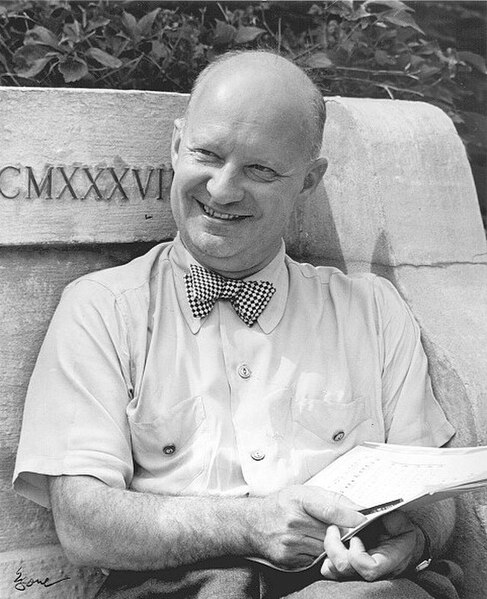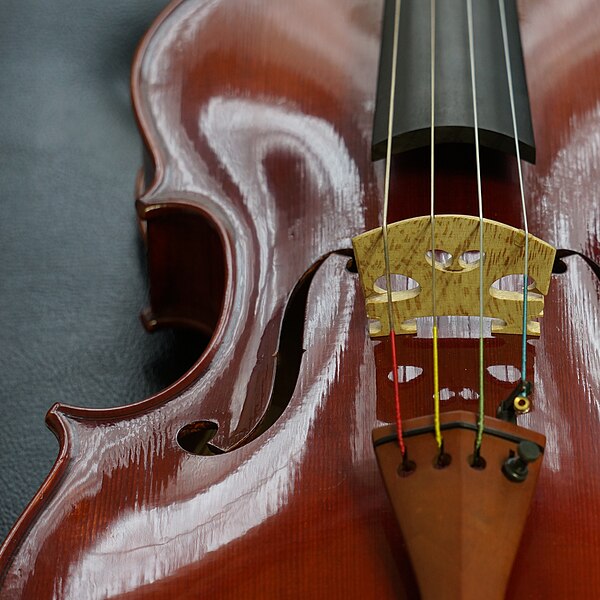Paul Hindemith was a German and American composer, music theorist, teacher, violist and conductor. He founded the Amar Quartet in 1921, touring extensively in Europe. As a composer, he became a major advocate of the Neue Sachlichkeit style of music in the 1920s, with compositions such as Kammermusik, including works with viola and viola d'amore as solo instruments in a neo-Bachian spirit. Other notable compositions include his song cycle Das Marienleben (1923), Der Schwanendreher for viola and orchestra (1935), the opera Mathis der Maler (1938), the Symphonic Metamorphosis of Themes by Carl Maria von Weber (1943), and the oratorio When Lilacs Last in the Dooryard Bloom'd (1946), a requiem based on Walt Whitman's poem. Hindemith and his wife emigrated to Switzerland and the United States ahead of World War II, after worsening difficulties with the Nazi German regime. In his later years, he conducted and recorded much of his own music.
Hindemith in 1923
Hindemith during the 1940s
Hindemith (left) received the Wihuri Sibelius Prize in 1955 from Antti Wihuri.
Swiss gravesite
The viola ( vee-OH-lə, Italian: [ˈvjɔːla, viˈɔːla]) is a string instrument that is usually bowed. Slightly larger than a violin, it has a lower and deeper sound. Since the 18th century, it has been the middle or alto voice of the violin family, between the violin (which is tuned a perfect fifth higher) and the cello (which is tuned an octave lower). The strings from low to high are typically tuned to C3, G3, D4, and A4.
Viola
Viola close up of bridge
Oak Leaf viola, Eric Benning, Benning Violins
Playing a 43 cm (17 in) viola in 3rd position.








